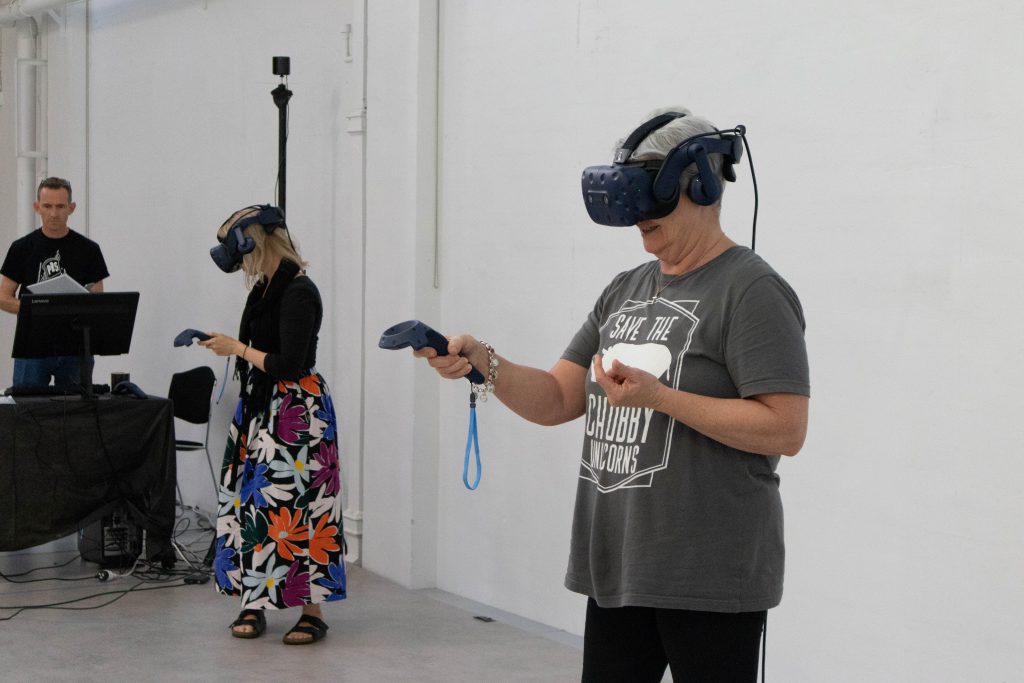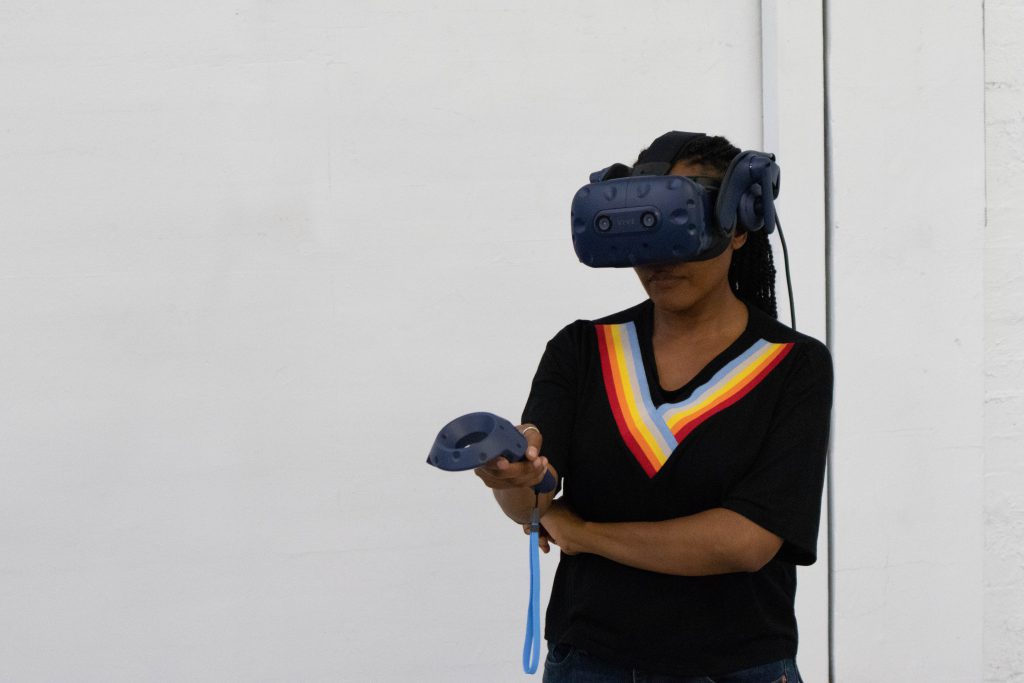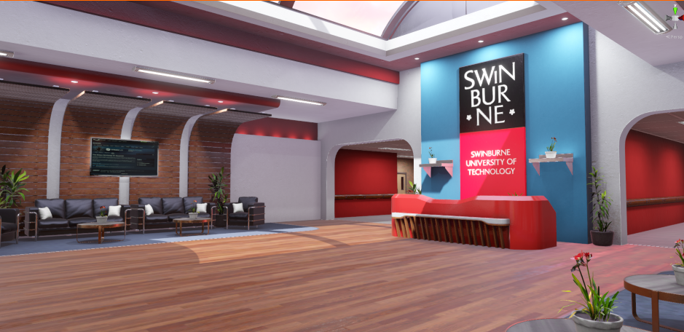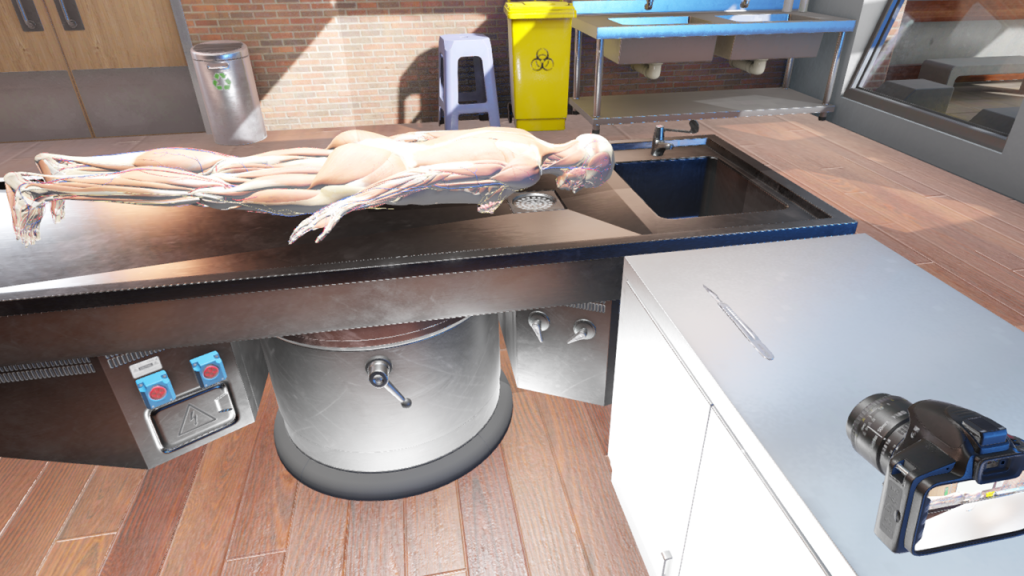
Safety at Work
Safety at Work is an applied research project to integrate immersive experiential learning with positive behaviour support training in the disability sector.
Partners
Victorian Government
Swinburne PAVE
Scope
Investigators
Kim Vincs (TMT)
John Scahill (SCOPE)
Debbie McLaughlin (PAVE)
Mark di Marco (SCOPE)
Jeni Paay (Swinburne CDI)
Rachael McDonald (Swinburne CDI)
Jordy Kaufman (Swinburne CMH)
John McCormick (TMT)
Karen Hall (PAVE)
Brendan Parsons (SCOPE)
Aoife McCann (SCOPE)
Natasha Drozdoff (SCOPE)
Karen Phelps (SCOPE)
Casey Richardson (TMT)
Casey Dalbo (TMT)
Haydon Bakker (TMT)
Adam Carr (TMT)
Jordan Cook-Irwin (TMT)
Stephen Jeal (TMT)
Irene Gironacci (TMT)
Tony Nguyen (TMT)
Esther Wilding (CDI)
Warren Davis (SCOPE)
Kathlyn Moynihan (PAVE)
Jacinta Purnaro (SCOPE)



Occupational violence is a significant risk within the disability sector, in particular where frontline support workers are supporting people with a disability in a residential or community environment where some individuals may exhibit challenging behaviours, in extreme cases involving violence. Acknowledging this challenge, Scope, one of Australia’s largest providers of disability support services and the lead provider of PBS training in Victoria, approached us with an ambitious workforce innovation idea. This idea has become ‘Safety at Work’, a multi-disciplinary research initiative that will mainstream VR for training disability support workers in positive behaviour support (PBS) for people with disabilities. Working with Scope, and with Swinburne PAVE, the Embodied Movement Design Studio team, led by Professor Kim Vincs, is developing a new approach to VR-based PBS training. We are using our deep creative and performance knowledge to co-create a set of five VR scenarios that have the key learning elements of PBS embedded within the choices users make, within an engaging and immersive interactive environment.
Professor Kim Vincs and Dr John McCormick from TMT are working with leading researchers from Swinburne’s Centre for Design Innovation, Professor Jeni Paay (user experience) and Professor Rachael McDonald (disability and health care), and from Swinburne’s Centre for Mental Health, Associate Professor Jordy Kaufman (psychology). Our collaboration also involves a large team of Scope PBS experts, led by Mark Di Marco (Manager, Positive Behaviour Support Services) and education specialists from PAVE, led by Debbie McLoughlin (Manager, Strategic Projects, Swinburne PAVE), to develop and validate the learning benefits of VR for PBS support.
By developing, testing and validating a stand-alone VR system that can be embedded within PBS curricula in the workforce and in TAFE courses, we aim to deliver a ‘step-change’ in the design and delivery of training within the disability and other adjacent human services sectors through efficiency (cost, mobility and scale) and effectiveness (improved learner experience, improved and enduring knowledge and behavioural outcomes). Through improving the scale and quality of PBS training, we aim to reduce the incidence of occupational violence in the disability sector.
This study addresses an increasingly important question in the use of VR for workplace training. While VR and AR training systems are being developed in many industries and many organisations around the world on the basis of VR’s ability to immerse and engage, the educational benefits of these systems are not yet fully understood.
Related Projects














